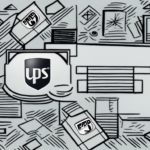Understanding UPS Insurance Rates in 2023
As an individual or business owner, protecting your packages during transit is essential. UPS insurance offers a reliable solution to safeguard your shipments against loss, damage, or theft. While UPS provides dependable parcel delivery services, unforeseen incidents can still occur. In this article, we delve into everything you need to know about UPS insurance rates in 2023, ensuring your packages are well-protected.
What is UPS Insurance?
UPS insurance is an optional service that provides financial protection for your packages during transit. It ensures that if your package is lost, stolen, or damaged, you will be reimbursed for the value of your goods up to the declared value. This insurance covers both domestic and international shipments and can be purchased at the time of booking or afterward, provided the package hasn't been delivered.
- Coverage for Loss, Theft, or Damage: Protects your package against unforeseen events during transit.
- Flexible Purchasing Options: Can be added during booking or later in the shipping process.
- High Coverage Limits: Suitable for both low-value and high-value items.
It's important to note that certain items like cash, jewelry, and antiques may require additional coverage or may not be covered under standard UPS insurance policies. Always ensure that the declared value accurately reflects the contents of your package to avoid discrepancies in coverage.
Why You Need UPS Insurance
Investing in UPS insurance offers several benefits that enhance the security of your shipments:
- Financial Protection: Recover the value of your package in case of loss or damage.
- Simplified Claims Process: Streamlined procedures for filing claims, reducing time and hassle.
- Peace of Mind: Confidence when shipping valuable or fragile items, allowing you to focus on your business or personal tasks.
Whether you're sending artwork, electronics, or high-value merchandise, UPS insurance ensures that your investment is protected throughout the shipping process.
How UPS Determines Insurance Rates
UPS insurance rates are primarily based on the declared value of your package. The following factors influence the insurance fee:
- Declared Value: The total value of the package, including the cost of items, taxes, and fees. Higher declared values result in higher insurance fees.
- Destination: Shipping to high-risk areas or regions with a history of package theft may increase rates.
- Package Type: Fragile or specialized items that require careful handling may incur higher insurance costs.
- Shipping Method: Different shipping services and speeds can affect insurance rates.
For high-value shipments exceeding $100,000, UPS may require additional insurance coverage or specialized policies tailored to specific item categories like fine art or jewelry.
Calculating Your UPS Insurance Fees
Calculating UPS insurance fees is straightforward using the UPS shipping calculator. Enter details such as destination, shipping date, package weight, and declared value to get an estimated cost, including insurance fees.
Keep in mind that UPS imposes maximum declared value limits, typically up to $50,000 for domestic shipments and $100,000 for international ones. For items exceeding these values, consider UPS’s excess value coverage options.
UPS Insurance Policies
UPS offers various insurance policies to meet different shipping needs:
- Declared Value Coverage: Basic protection against loss or damage up to the declared value.
- UPS Proactive Response Secure: Enhanced protection for high-value items, including advanced tracking and risk management.
- UPS WorldShip Funds Transfer: Covers funds transfer fees, primarily used for international shipments.
Each policy comes with specific terms, conditions, and limitations. It’s crucial to review them thoroughly to ensure they align with your shipping requirements.
Comparing Different UPS Insurance Policies
When selecting an insurance policy, consider the following:
- Coverage Limits: Ensure the policy covers the full value of your package.
- Policy Costs: Balance the level of protection with the associated fees.
- Specific Needs: High-value or fragile items may require specialized coverage options.
For detailed comparisons, refer to UPS’s official documentation or consult with a UPS representative to choose the best policy for your needs.
Choosing the Best UPS Insurance Policy for Your Needs
Selecting the right UPS insurance policy depends on several factors:
- Package Value: Higher-value items benefit from enhanced coverage options.
- Destination: International shipments or high-risk areas may necessitate additional insurance.
- Item Type: Fragile or specialized items may require specific handling and coverage.
Evaluate your shipping needs against the available policies to choose the most suitable option, ensuring both adequate protection and cost-effectiveness.
Tips for Saving Money on UPS Insurance Rates
- Accurate Valuation: Declare only the necessary value to avoid inflated insurance fees.
- Bundling Services: Utilize UPS’s multiple service offerings to potentially receive discounted insurance rates.
- Third-Party Providers: Consider alternative insurance providers that may offer more competitive rates.
- Efficient Packaging: Properly package items to reduce the risk of damage, potentially lowering insurance costs.
By implementing these strategies, you can effectively manage and reduce your UPS insurance expenses without compromising on coverage.
Common Mistakes to Avoid When Purchasing UPS Insurance
- Incorrect Declared Value: Underestimating or overestimating the value can lead to inadequate coverage or unnecessary fees.
- Poor Packaging: Improperly packaged items may not be covered adequately, leading to claim denials.
- Delayed Claim Filing: Not filing claims promptly can result in missed reimbursement opportunities.
- Ignoring Policy Terms: Failing to understand the coverage details and exclusions can lead to unexpected out-of-pocket expenses.
By avoiding these common pitfalls, you can ensure that your UPS insurance provides the protection you need without unnecessary costs or complications.
The UPS Insurance Claim Process
If your package is lost or damaged during transit, understanding the UPS insurance claim process is essential:
Filing a Claim
- Gather necessary documentation, including the package tracking number, original invoice or receipt, and evidence of damage.
- Submit the claim through the UPS WorldShip platform or via UPS customer service.
Claim Evaluation
UPS will assess the claim based on the provided documentation and determine the reimbursement amount up to the declared value.
Receiving Reimbursement
If the claim is approved, UPS will process the reimbursement within ten business days.
Ensure all information is accurate and submitted promptly to facilitate a smooth and successful claim process.
Conclusion
UPS insurance is a vital service for safeguarding your packages during transit. Whether you're an individual sending valuable personal items or a business shipping products, understanding UPS insurance rates and policies is crucial. By leveraging the right insurance coverage and following best practices, you can protect your shipments effectively and maintain peace of mind.








